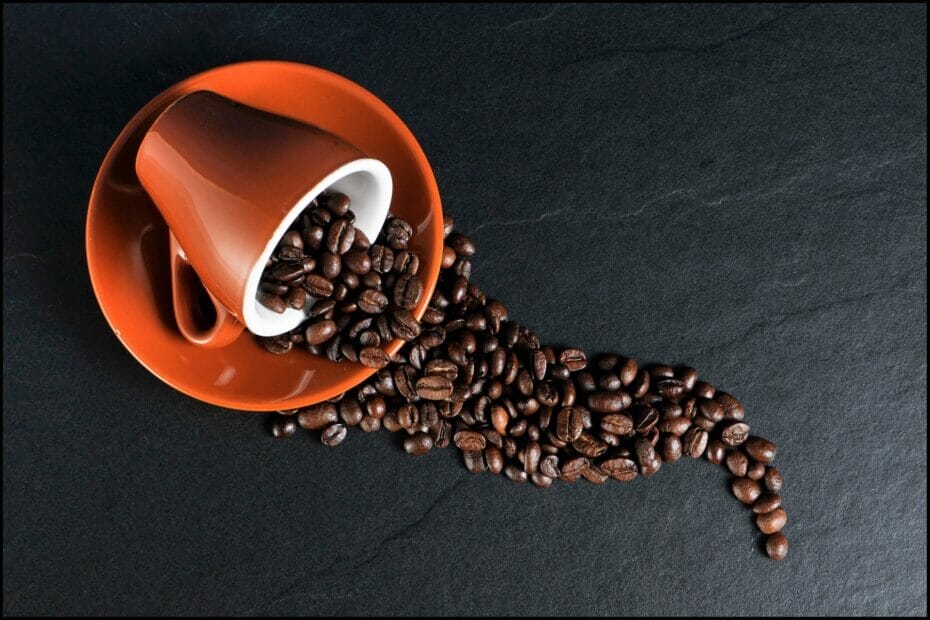Does Coffee Affect Cholesterol Test?
When it comes to cholesterol tests, does coffee have an effect on the results?
It’s a valid question that many of us have, and the answer is a definitive yes. Caffeinated beverages – including coffee – can affect cholesterol levels when consumed in excess. As such, it is important to limit your intake prior to taking a cholesterol test.
This is because caffeine can increase LDL cholesterol levels. When drinking coffee or any other caffeinated beverage before getting tested for cholesterol, it could potentially lead to inaccurate readings due to an artificially elevated LDL level. Therefore, even if you drink several cups of coffee regularly, you should abstain from doing so at least 24 hours before the test.
Why Do Doctors Instruct Patients To Fast?
Fasting is an essential part of the cholesterol test, and doctors advise their patients to fast in preparation for the test. It’s important that everyone takes this advice seriously as it’s necessary to get accurate results from your cholesterol tests.

Consuming food or liquids like coffee can raise the levels of fats and other substances in your blood flow, thus altering its natural state, which can lead to false results being produced by the test.
Fasting ensures that these levels remain normal so that you obtain a proper understanding of your health. Eating or drinking anything before taking the test could create ambiguity in the results, thus even a cup of coffee has to be avoided when preparing for the cholesterol tests.
Accurate results help you assess your dietary habits more effectively and likewise create tailored solutions based on them, so always follow your doctor’s advice and fast before you take any form of cholesterol test.
What Does Fasting Entail?
Fasting entails abstaining from eating and drinking anything but water for a set period of time before your cholesterol test. Depending on the fasting instructions that you follow, that may range between 8-12 hours.
It is important to note that this includes all food, beverages, and even certain medications like Vitamin C supplements or caffeine. Even if caffeine is not typically restricted in these instances, it is best to avoid the consumption of coffee before the cholesterol test as caffeine can affect the accuracy of the results.

So if you are preparing for a fasting cholesterol test, make sure to avoid all food, beverages, and any potential medicines during your fasting period to ensure an accurate result.
What Can You Expect During The Exam?
If you’re planning on having a cholesterol test done, then you can expect to get the most accurate results. However, it is important to note that caffeine affects your overall cholesterol levels. So before you head in for your test, make sure to avoid coffee or other caffeinated drinks. This will ensure that your results are as accurate as possible!
What Do The Findings Imply?
The findings from several studies indicate that Turkish coffee consumption may influence your cholesterol levels. While some research points to an increase in total cholesterol, others suggest a decrease in LDL (bad) cholesterol and an increase in HDL (good) cholesterol.
It appears that other dietary factors can play a role alongside coffee, such as the amount of sugar and cream added. In general, more randomized controlled trials are needed to accurately evaluate the exact effect of coffee on cholesterol and cardiovascular health.
Why Do Cholesterol Tests Exist?
Cholesterol tests are a crucial part of understanding your body and assessing your risk for certain health conditions, especially when it comes to cardiovascular diseases. High cholesterol is one of the main risks associated with this type of disease, which is why making healthy lifestyle and dietary choices can help keep it under control.

Additionally, knowing whether or not you have an elevated level of cholesterol in the blood pressure is important so that you can make sure to adjust your diet accordingly and reduce your risk accordingly.
Who Should Get Their Cholesterol Checked?
It’s no secret that knowing your cholesterol numbers is important for overall health, but there are certain people who should get the regular type of cholesterol tests. To ensure you and your doctor have up-to-date information about your lipid levels, anyone between the ages of 20 and 40 with risk factors for heart disease should get their cholesterol checked every five years, and those over 40 should get tested every two to four years.
Understanding Coffee And Cholesterol
Understanding coffee and initial cholesterol are important for anyone who wants to keep their numbers in check. We know that regular consumption of coffee can affect some of our body’s health-related markers, including cholesterol levels.

While strictly moderate caffeinated coffee intake from beverages such as coffee may not have a direct effect on cholesterol sticks or lipid levels, it can reduce HDL or “good” cholesterol and increase levels of LDL or “bad” cholesterol. Because it has the potential to fend against cardiovascular disease, high-density lipoprotein (HDL) is classified as “good” cholesterol.
Filtered Coffee Is The Better Option
When it comes to the connection between coffee and actual cholesterol tests, the filtered coffee bean can be the best choice. Filtering your cup of Joe helps remove most of the diterpenes which can negatively affect the blood lipid panel. Studies on coffee have only a minimal impact on LDL cholesterol, compared to unfiltered coffee which has been linked with elevated LDL levels.

Take Decaf For Example
When it comes to cholesterol scores, taking decaf is something that should not be overlooked. While many people might turn to coffee for a quick energy boost or an afternoon pick-me-up, drinking coffee — regular or decaf — can actually have an effect on the results of your levels of cholesterol test. Specifically, the caffeine in coffee temporarily increases LDL bad cholesterol levels in your blood vessels.
Consider What You Put In Your Coffee
If you’re undergoing a cholesterol test, it pays to consider what you put in your coffee grounds. We often think of coffee drinkers as an innocuous beverage, but certain additions like milk, cream, sugar, and artificial sweeteners can affect the results.
Milk and cream contain fats that increase your cholesterol level, and high levels of sugar or artificial sweeteners can potentially interfere with the accuracy of the test results.
A great way to ensure that your test result is accurate is to opt for black coffee without any additional creams or sweeteners. This will give you a better chance of getting an accurate reading. If you do choose to add some type of flavoring to your coffee with sugar, it might be best to stick with natural sources such as honey or cinnamon which are much less likely to affect the test results.
Does Coffee Affect Cholesterol Test?
When it comes to cholesterol tests, does coffee have an effect on the results?
It’s a valid question that many of us have, and the answer is a definitive yes. Caffeinated beverages – including coffee – can affect cholesterol levels when consumed in excess. As such, it is important to limit your intake prior to taking a cholesterol test.
This is because caffeine can increase LDL cholesterol levels. When drinking coffee or any other caffeinated beverage before getting tested for cholesterol, it could potentially lead to inaccurate readings due to an artificially elevated LDL level. Therefore, even if you drink several cups of coffee regularly, you should abstain from doing so at least 24 hours before the test.
Why Do Doctors Instruct Patients To Fast?
Fasting is an essential part of the cholesterol test, and doctors advise their patients to fast in preparation for the test. It’s important that everyone takes this advice seriously as it’s necessary to get accurate results from your cholesterol tests.
Consuming food or liquids like coffee can raise the levels of fats and other substances in your blood flow, thus altering its natural state, which can lead to false results being produced by the test.
Fasting ensures that these levels remain normal so that you obtain a proper understanding of your health. Eating or drinking anything before taking the test could create ambiguity in the results, thus even a cup of coffee has to be avoided when preparing for the cholesterol tests.
Accurate results help you assess your dietary habits more effectively and likewise create tailored solutions based on them, so always follow your doctor’s advice and fast before you take any form of cholesterol test.
What Does Fasting Entail?
Fasting entails abstaining from eating and drinking anything but water for a set period of time before your cholesterol test. Depending on the fasting instructions that you follow, that may range between 8-12 hours.
It is important to note that this includes all food, beverages, and even certain medications like Vitamin C supplements or caffeine. Even if caffeine is not typically restricted in these instances, it is best to avoid the consumption of coffee before the cholesterol test as caffeine can affect the accuracy of the results.
So if you are preparing for a fasting cholesterol test, make sure to avoid all food, beverages, and any potential medicines during your fasting period to ensure an accurate result.
What Can You Expect During The Exam?
If you’re planning on having a cholesterol test done, then you can expect to get the most accurate results. However, it is important to note that caffeine affects your overall cholesterol levels. So before you head in for your test, make sure to avoid coffee or other caffeinated drinks. This will ensure that your results are as accurate as possible!
What Do The Findings Imply?
The findings from several studies indicate that Turkish coffee consumption may influence your cholesterol levels. While some research points to an increase in total cholesterol, others suggest a decrease in LDL (bad) cholesterol and an increase in HDL (good) cholesterol.
It appears that other dietary factors can play a role alongside coffee, such as the amount of sugar and cream added. In general, more randomized controlled trials are needed to accurately evaluate the exact effect of coffee on cholesterol and cardiovascular health.
Why Do Cholesterol Tests Exist?
Cholesterol tests are a crucial part of understanding your body and assessing your risk for certain health conditions, especially when it comes to cardiovascular diseases. High cholesterol is one of the main risks associated with this type of disease, which is why making healthy lifestyle and dietary choices can help keep it under control.
Additionally, knowing whether or not you have an elevated level of cholesterol in the blood pressure is important so that you can make sure to adjust your diet accordingly and reduce your risk accordingly.
Who Should Get Their Cholesterol Checked?
It’s no secret that knowing your cholesterol numbers is important for overall health, but there are certain people who should get the regular type of cholesterol tests. To ensure you and your doctor have up-to-date information about your lipid levels, anyone between the ages of 20 and 40 with risk factors for heart disease should get their cholesterol checked every five years, and those over 40 should get tested every two to four years.
Understanding Coffee And Cholesterol
Understanding coffee and initial cholesterol are important for anyone who wants to keep their numbers in check. We know that regular consumption of coffee can affect some of our body’s health-related markers, including cholesterol levels.
While strictly moderate caffeinated coffee intake from beverages such as coffee may not have a direct effect on cholesterol sticks or lipid levels, it can reduce HDL or “good” cholesterol and increase levels of LDL or “bad” cholesterol. Because it has the potential to fend against cardiovascular disease, high-density lipoprotein (HDL) is classified as “good” cholesterol.
Filtered Coffee Is The Better Option
When it comes to the connection between coffee and actual cholesterol tests, the filtered coffee bean can be the best choice. Filtering your cup of Joe helps remove most of the diterpenes which can negatively affect the blood lipid panel. Studies on coffee have only a minimal impact on LDL cholesterol, compared to unfiltered coffee which has been linked with elevated LDL levels.
Take Decaf For Example
When it comes to cholesterol scores, taking decaf is something that should not be overlooked. While many people might turn to coffee for a quick energy boost or an afternoon pick-me-up, drinking coffee — regular or decaf — can actually have an effect on the results of your levels of cholesterol test. Specifically, the caffeine in coffee temporarily increases LDL bad cholesterol levels in your blood vessels.
Consider What You Put In Your Coffee
If you’re undergoing a cholesterol test, it pays to consider what you put in your coffee grounds. We often think of coffee drinkers as an innocuous beverage, but certain additions like milk, cream, sugar, and artificial sweeteners can affect the results.
Milk and cream contain fats that increase your cholesterol level, and high levels of sugar or artificial sweeteners can potentially interfere with the accuracy of the test results.
A great way to ensure that your test result is accurate is to opt for black coffee without any additional creams or sweeteners. This will give you a better chance of getting an accurate reading. If you do choose to add some type of flavoring to your coffee with sugar, it might be best to stick with natural sources such as honey or cinnamon which are much less likely to affect the test results.
